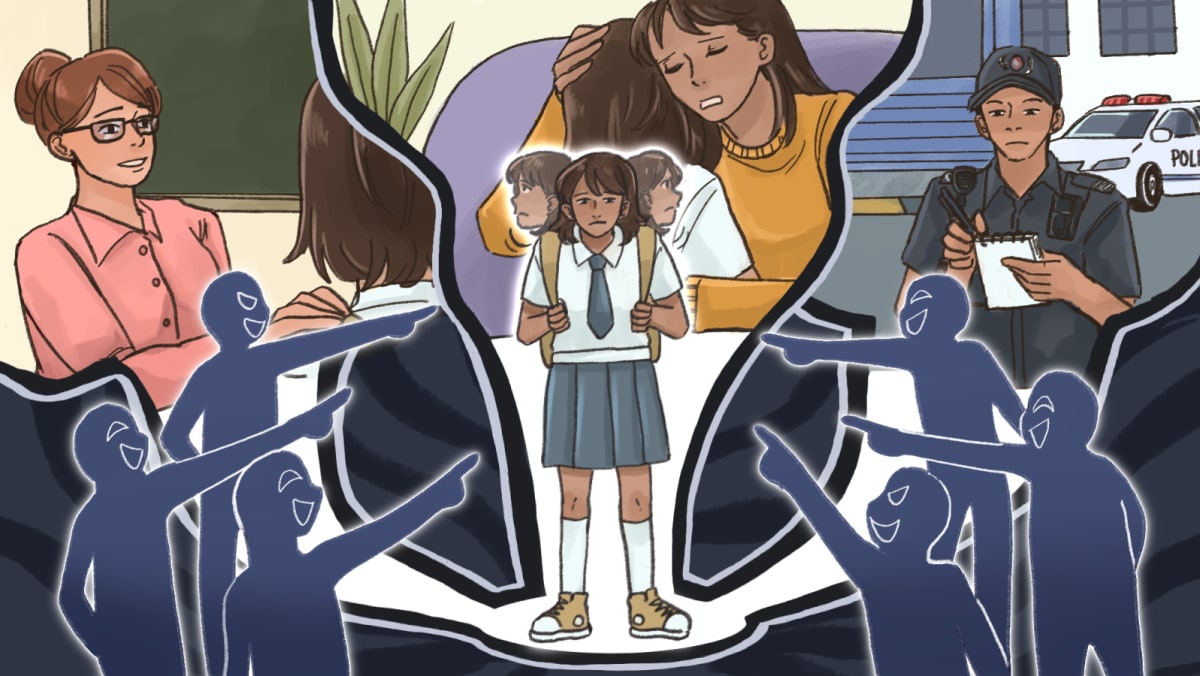SINGAPORE: It began with being ostracised, escalated to dropping out of school and came to a head when she was blackmailed into having sex.
The first signs appeared when Leah, who asked to use a pseudonym, was in Secondary 2 and part of a “squad” of about five students in their girls’ school.
But she was the odd one out; unable to relate and feeling excluded from conversations.
At that point, it had been a year since she was formally diagnosed with depression, anxiety and obsessive compulsive disorder or OCD – and made the mistake of confiding this to the group.
They promptly shunned her, spread word of her mental health struggles and shamed her for also harming herself. When confronted, they told her she was “too different” for their liking.
“At that time, it felt really cruel,” said Leah, now 22. “I was upset and I did feel betrayed.”
Pushed to the brink, she decided to drop out and enrol in a private institution to take her O-Levels.
But the girls weren’t done, with one of them threatening to tell Leah’s parents about her mental health issues unless she slept with the girl’s ex-boyfriend.
While perhaps less visible, Leah’s case was no less insidious than a spate of physical and visceral bullying instances that have surfaced in recent weeks.
In September, a video of a Bukit View Secondary School pupil being taunted and kicked to the ground made online rounds, prompting police investigations.
A week later, an online clip of a Qihua Primary School student being assaulted by an older boy led to the arrest of five teenagers.
And earlier in October, a Meridian Secondary School pupil reportedly ruptured her right eardrum after being attacked by schoolmates.
According to the Ministry of Education (MOE) the average number of bullying incidents has remained “steady” in the last five years.
For every 1,000 students, there were an average of two incidents in primary schools and six incidents in secondary schools annually, for any form of bullying and both inside and outside school.
Yet questions have since been raised, including by lawmakers, on whether schools and teachers are sufficiently equipped today to deal with bullying. If the answer is no, is it time then for other authorities such as the courts and the police to play a bigger role? And how do parents fit into the process?
While there may be policies and interventions in schools, bullying these days extends beyond the school to include the virtual environment, chairperson of the Government Parliamentary Committee (GPC) for Education Patrick Tay told CNA.
There are more situations where educators are unable to handle bullying and may even “put themselves at risk to threats and harms”, said Mr Tay, who’s Member of Parliament for Pioneer.
“It is therefore imperative that educators are not just equipped to handle such scenarios, but that law enforcement and other community services agencies beef up their capabilities to work with schools and the community, to combat egregious bullying behaviours and the bullies themselves who may be facing issues beyond the school environment.”
